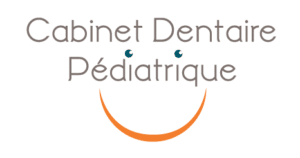In the mouth, we have several soft tissue brakes that connect two parts of our oral cavity.
For example, a lip lock attaches the upper or lower lip to the gum, while the tongue lock attaches the underside of the tongue to the floor of the mouth.
Articulatory problems in the tongue or lip frenulum can cause a delay in language learning. In some infants, the lingual frenulum is too short.
This congenital anomaly is called ankyloglossia. It causes discomfort at the time of breastfeeding and is usually detected very early in babies.
Fatigue, difficulty feeding, digestion and sleep problems are the main symptoms.
If the presence of a restrictive tongue-brake is not detected early, the child may experience language difficulties and difficulties in pronouncing certain sounds.
Language brake and pronunciation
In children between the ages of 3 and 6, a short tongue brake can impact the pronunciation of words. All sounds that require tongue extension, such as "t", "d", "n", "l", "s", "z" can be more complicated for the child to pronounce.
This speech impediment can be detected by the parents at the first words. In most cases, despite the language barrier, the pronunciation is still understandable.
The language adapts and finds new positions.
In rarer cases, ankyloglossia actually prevents the child from pronouncing and understanding language properly. In this case, a small surgical operation on the tongue bridge is necessary.
Tongue brake and articulation
As seen above, articulatory disorders in children can be caused by a "tight" tongue brake. If it is too short, the tongue brake hinders the articulation of the tongue and prevents it from positioning itself correctly.
It then remains blocked in the lower part of the mouth. In the medium and long term, this misplacement of the tongue may interfere with the child's oral growth:
- Dental and orthodontic disorders
- Poor jaw and tooth position
- Cavities
- Etc.
A tongue-tie that hinders tongue articulation can also interfere with swallowing and chewing in children and force them to maintain an infant-like swallow. He cannot exert pressure with his tongue on the palate when swallowing.
The palate of a child with a short tongue frenulum does not develop normally and he/she will tend to breathe through the mouth instead. In addition, their sleep is usually restless.
Language and language brake: frenectomy as a solution
If you find that your child's tongue-lock is really interfering with his speech and language, you should know that it is possible to perform a frenectomy.
Also called freinectomy, this operation consists of cutting the lingual frenulum to help the child regain good tongue mobility. This procedure is painless and heals quickly.
Following the frenectomy, pronunciation exercises or a few sessions with a speech therapist can help the child place his or her tongue correctly and improve pronunciation.
Generally, as soon as the tongue brake is cut, the child's speech quickly becomes more fluid.
Do you suspect that your child's tongue-lock is interfering with his/her speech and pronunciation? Don't hesitate to make an appointment at Dr. Adriana Agachi's office.
A child dentist in Paris, she will examine your child and perform a laser frenectomy if the procedure is required.
Frequently asked questions about the relationship between the language brake and language
Yes, especially the sounds that require the tongue to be lengthened to be pronounced (the "t", "d", "n", "l", "s" and "z" sounds).
Speech therapy sessions are not always sufficient to correct pronunciation problems. A frenectomy is sometimes necessary, followed by further speech therapy.


